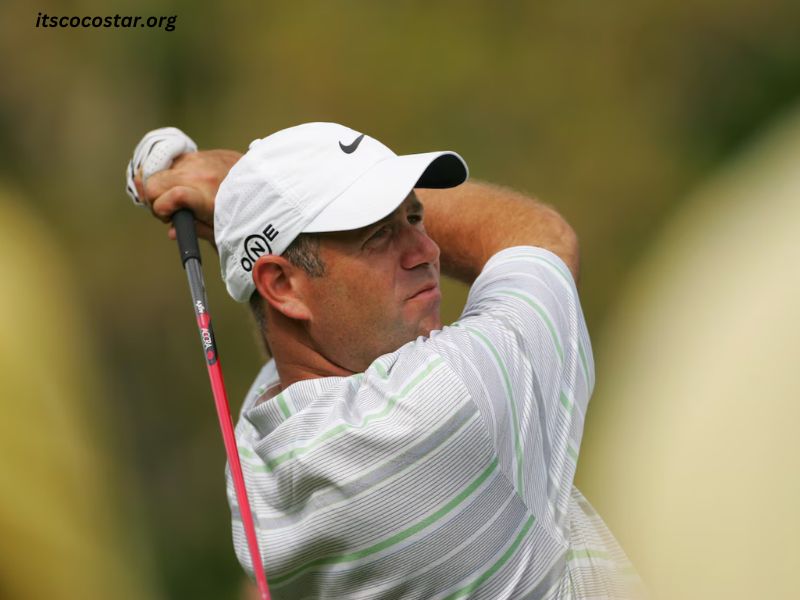Golf is often celebrated as a sport that welcomes players of all ages and skill levels. While many professional golfers begin honing their skills in childhood, there are inspiring stories of late bloomers who defied the odds to achieve remarkable success. This article delves into the fascinating question: Who is the oldest golf player to start late? We’ll explore notable late starters, their journeys, and how they demonstrate that it’s never too late to chase your dreams in golf.
The Beauty of Starting Late in Golf
Golf is unique among sports for its accessibility across a lifetime. Unlike physically demanding sports that favor youth, golf emphasizes technique, strategy, and mental toughness—skills that can be developed later in life. This makes it an excellent sport for those seeking a new challenge or a way to stay active.
For some players, picking up golf later in life leads to unexpected success, proving that age is just a number. Let’s explore some inspirational stories of players who started late and made a name for themselves.
Larry Nelson: A Legend Who Started Late
When discussing late starters in golf, one name stands out: Larry Nelson. Born in 1947, Nelson didn’t pick up a golf club until he was 21 years old—a late start by professional standards. Nelson’s story is particularly remarkable because he only began playing after returning from military service in Vietnam. Inspired by fellow soldiers and armed with a copy of Ben Hogan’s Five Lessons: The Modern Fundamentals of Golf, Nelson taught himself the game.
Despite his late start, Nelson turned professional in 1971 at the age of 24. Over his career, he won three major championships and 10 PGA Tour titles, eventually earning a spot in the World Golf Hall of Fame. Nelson’s achievements demonstrate that a passion for golf, coupled with discipline and dedication, can overcome a late start.
Jim Rutledge: Persistence Pays Off
Another inspirational figure is Jim Rutledge, a Canadian golfer who turned professional in 1978 but didn’t see significant success on the PGA Tour until his later years. While Rutledge began playing golf as a teenager, his career trajectory serves as a testament to persistence. His breakthrough came in his 50s when he began competing on the PGA Champions Tour, highlighting that significant achievements in golf can come later in life.
Breaking Stereotypes: Older Beginners Making an Impact
While the stories of Larry Nelson and Jim Rutledge involve players who transitioned to professional golf, other late starters have achieved impressive results in amateur circuits or personal milestones.
Susan Lyle: Senior Golf Champion
Susan Lyle began playing golf in her 50s as a hobby. Her interest quickly evolved into a passion, and she started competing in local and regional tournaments. Lyle became a senior golf champion, proving that women can excel in the sport even if they start later in life. Her story is a beacon for those looking to pursue golf in their retirement years.
Moe Norman: The Self-Taught Phenomenon
Canadian golfer Moe Norman may not have started particularly late, but his self-taught approach resonates with late bloomers. Known for his unconventional yet effective swing, Norman’s legacy inspires those who come to golf without formal training, emphasizing that innovation and practice can lead to mastery.
Factors That Contribute to Success for Late Starters
Success stories of late-starting golfers like Larry Nelson and Susan Lyle often share common themes:
1. Passion for the Game
A genuine love for golf is essential. Passion fuels the persistence and patience needed to master the game.
2. Access to Resources
Whether it’s a book, a mentor, or a local golf course, having access to learning tools and facilities plays a significant role.
3. Mental Resilience
Golf requires a strong mental game. Older beginners often bring maturity and mental toughness that help them overcome challenges.
4. Time and Dedication
Starting late doesn’t mean achieving less. It requires consistent effort and a willingness to learn and adapt.
Challenges Faced by Late Starters
While success stories are inspiring, it’s important to acknowledge the challenges faced by older golfers:
- Physical Limitations: Age-related physical changes can affect strength, flexibility, and stamina.
- Skill Gap: Competing with younger players who have years of experience can be intimidating.
- Limited Time: Older players may have fewer years to dedicate to the game compared to those who start young.
However, these challenges are not insurmountable. With proper training, a healthy lifestyle, and determination, late starters can excel in golf.
Tips for Late Starters in Golf
If you’re inspired by stories of late-starting golfers, here are some practical tips to help you get started:
1. Invest in Lessons
Professional coaching can accelerate your learning curve by helping you develop good habits from the start.
2. Practice Regularly
Consistency is key. Dedicate time to practice your swing, putting, and short game.
3. Use the Right Equipment
Modern golf clubs are designed to suit different skill levels and physical abilities. Choose equipment that matches your needs.
4. Set Realistic Goals
Whether it’s improving your handicap or entering a local tournament, set achievable milestones to stay motivated.
5. Join a Community
Connecting with other golfers can provide support, encouragement, and opportunities to learn.
Why Golf Welcomes Late Bloomers
Golf’s inclusive nature makes it an ideal sport for late starters. Clubs and courses around the world cater to players of all ages and skill levels. Additionally, amateur leagues and senior tournaments provide platforms for older players to compete and thrive.
Conclusion
Determining the oldest golf player to start late depends on the context. Larry Nelson stands out as a professional who defied the odds to become a Hall of Famer. On the amateur side, countless stories of late bloomers, like Susan Lyle, demonstrate that starting late doesn’t mean finishing last.
Golf is a sport where perseverance and passion often outweigh the advantages of youth. If you’ve ever considered picking up a golf club but felt it was too late, let these stories inspire you. It’s never too late to start, and who knows? You might just become the next great story in golf history.
Final Thought
So, who is the oldest golf player to start late? While it’s difficult to pinpoint one individual, the answer lies in the countless stories of resilience and determination that make golf such a timeless sport. Whether you’re 20, 50, or 70, the journey of learning and enjoying golf can start at any age. Don’t let the clock hold you back—pick up a club and discover the joys of the game today!






